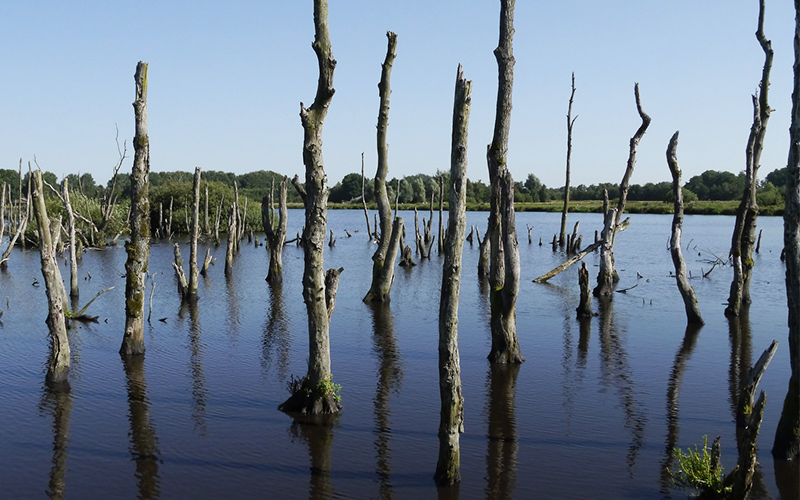Read the latest in forest news and updates from American Forests staff and programs in this week’s Forest Digest!
Forest News

- Poland vows to continue logging in Białowieża forest despite court ban — The Guardian
Poland, this is a bold move. Despite the EU’s court ban, which suspended operations in a UNESCO-listed ancient forest, the country has decided to defy the order and continue logging. The Polish government has countered backlash with the claim that the felling began last year in order to “contain damage caused by a spruce bark beetle infestation and to fight the risk of forest fires.” - Climate change before your eyes: Seas rise and trees die — The Washington Post
Scientists have named “ghost forests,” which are defined as “dead trees along vast swaths of coastline invaded by rising seas,” as one of the most visible markers of climate change. As polar ice caps melt due to rising temperatures, sea levels rise, thus essentially drowning the trees adapted to thrive in freshwater plains. These ghost forests are particularly prominent in North America, though they exist all over the world. - Amazon forest’s importance in regulating atmospheric chemistry reinforced — ScienceDaily
Isoprene, an organic compound emitted by trees, helps to balance greenhouse gases in the atmosphere. And the Amazon rainforest seems to be producing a lot more of it than scientists previously thought – three times more to be exact. As the world’s largest source of isoprene, this only further affirms the rainforest’s important role in maintaining and regulating the planet’s tropical atmospheric chemistry. - New study reveals just how much humans have altered England’s landscape — Treehugger.com
In 2001, Nobel Laureate Paul J. Crutzen suggested in an article that due to drastic changes to Earth’s landscape as a result of industrialization and globalization, humans are now living in a new epoch called the Anthropocene. Now, a new study by Cambridge University has concluded that the effects of industrialization on Earth’s landscape (water acidification, factory smoke residue, etc.) are irreversible, reinforcing this concept of a new epoch. - Michigan family drives across America visiting 349 national park sites — MLive
This Michigan family has an incurable case of wanderlust. The Maitlands, a family of four, have traveled to 349 of the 417 national park sites and more than half of the American national parks since 2010. Inspired by the Ken Burns documentary “The National Parks: America’s Best Ideas”, they have traveled thousands of miles with their camper in tow.